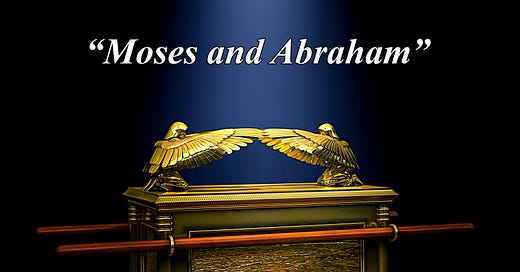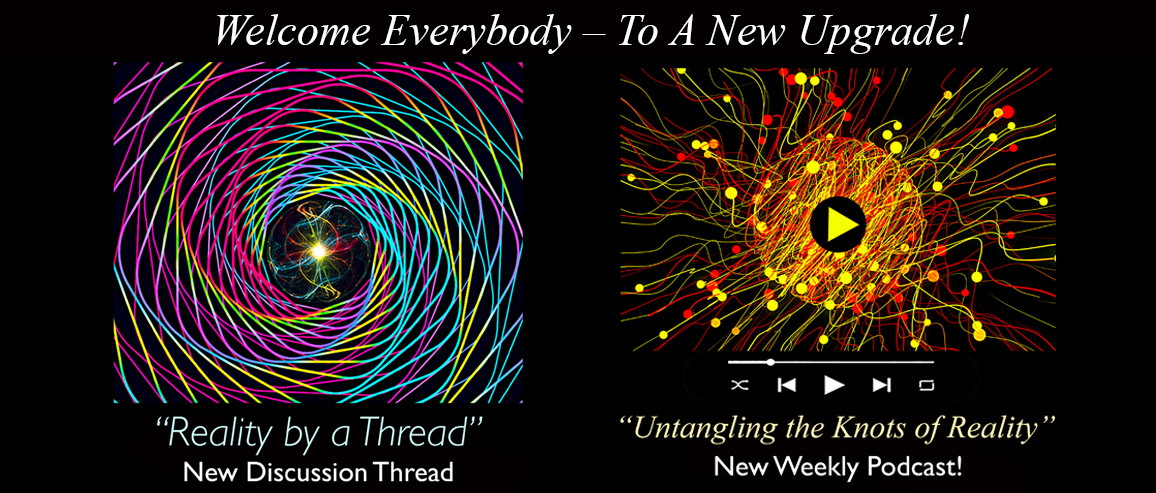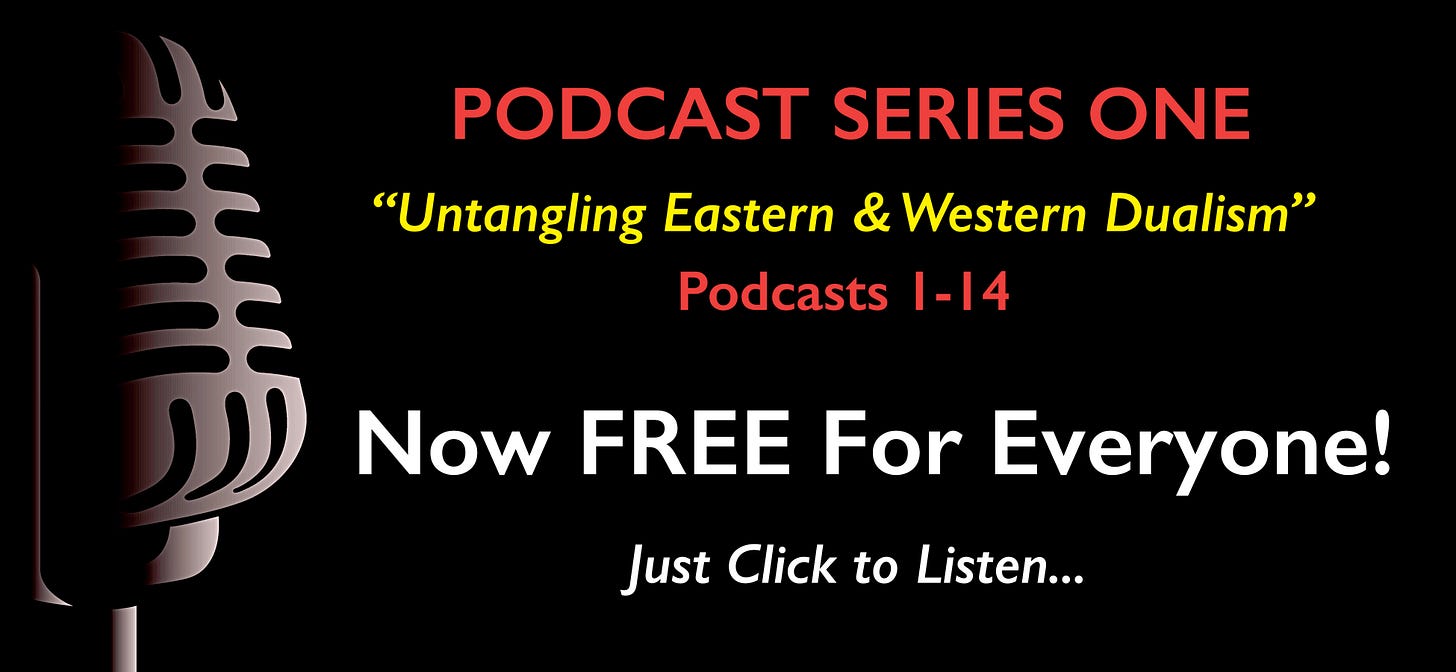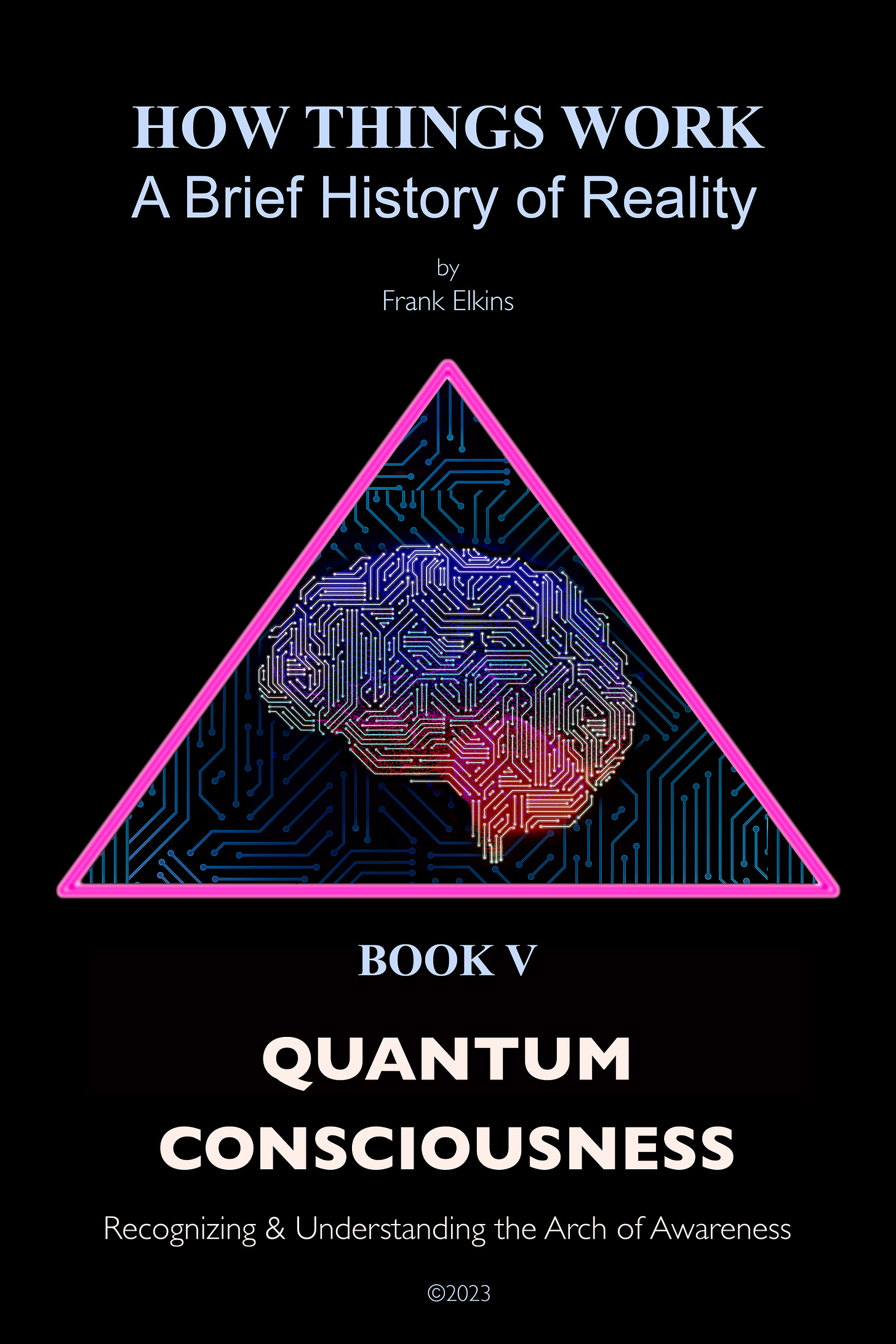How Things Work: A Brief History of Reality
BOOK II: The Power of Three (Science & Religion) – Consideration #88. "Moses and Abraham"
Be a part of the Conversation!
Tuesday June 20, 2023
"Have you forgotten God? Even if you have, he has not forgotten you."
– Moses
PREFACE
Welcome Everybody!
The story of Moses continues the Biblical narrative by fulfilling God’s promise to Abraham and influences Western Culture in three critical ways. First, it establishes a framework for representative government. Second, it incorporates the notion of a “universal” law that applies equally to everyone, even the leaders and rulers of society. Third, it becomes a major metaphor for American slaves seeking their freedom and liberty in the New World, and later for the Civil Rights Movement in the United States. From a Jewish perspective it is the story that codifies Judaism.
“…like any great protagonist, Moses grows and develops over the course of the narrative.”
Moses is considered perhaps the greatest prophet in the Old Testament. However, that is the Moses at the end of the story. When the narrative begins, Moses shows no inclination for such a possibility, displaying extremely “un-prophet like” behavior such as fear, reluctance, and a general lack of faith. However, like any great protagonist, Moses grows and develops over the course of the narrative. It could certainly be argued that Moses has had more influence on Western Culture than any other Old Testament character in the Bible.
CONSIDERATION – “Abraham and Moses” (Exodus 1-2)
The second key turning point in the Bible is the Exodus of the Israelites from slavery in Egypt. It fulfills both God’s prophecy and promise to Abraham and introduces the essential elements of Judaism, Christianity, and what will become the Western World. The person God chooses to complete this mission is Moses. The story of Moses reflects an epic tale of a traditional Western hero. It begins with God’s fulfillment of His promise to Abraham.
In Exodus 1:8-11 the Israelites had become so “numerous” that the new king of Egypt felt threatened by their sheer number:
Then a new king, to whom Joseph meant nothing, came to power in Egypt. “Look,” he said to his people, “the Israelites have become far too numerous for us. Come, we must deal shrewdly with them or they will become even more numerous and, if war breaks out, will join our enemies, fight against us and leave the country.”
Exodus 1:8-10
The king’s solution for controlling the increasing number of Israelites in Egypt was to enslave them:
So they put slave masters over them to oppress them with forced labor, and they built Pithom and Rameses as store cities for Pharaoh. But the more they were oppressed, the more they multiplied and spread; so the Egyptians came to dread the Israelites and worked them ruthlessly.
Exodus 1:11-13
The first few verses of Exodus reveal the fulfilment of God’s prediction to Abraham that he would have a large number of decedents and that they would become slaves in a foreign land for four generations. Now, the final part of the agreement was about to be implemented. Moses would free the Israelites from the bondage of the greatest power on earth and lead them to God’s “promised land.”
However, when the king found he could not control the Israelites’ growth through enslavement, he decided to use a more drastic approach: genocide through infanticide.
The king of Egypt said to the Hebrew midwives, whose names were Shiphrah and Puah, “When you are helping the Hebrew women during childbirth on the delivery stool, if you see that the baby is a boy, kill him; but if it is a girl, let her live.”
Exodus 1:15
However, because the midwives “feared God” they did not follow the king’s orders. When the king asked them why they had disobeyed him they answered:
“Hebrew women are not like Egyptian women; they are vigorous and give birth before the midwives arrive.”
Exodus 1:19
Because the midwives had feared God, and done the right thing, He rewards them with families of their own. However, upon hearing the midwives excuse the king decreed:
“Every Hebrew boy that is born you must throw into the Nile, but let every girl live.”
Exodus 1:22
After giving birth to Moses, his mother hid him for three months to keep him alive. Desperate to save her son, she waterproofed a papyrus basket, placing Moses in it and putting it among the reeds by the bank of the Nile River where the king’s daughter often bathed. The king’s daughter finds the child and adopts him for her own, naming him Moses, meaning “I drew him out of the water.”
After growing up, Moses kills an Egyptian for beating a Hebrew slave. Upon hearing this, the King orders the death of Moses. Fearing for his life, Moses flees Egypt into the desert to a land called Midian. There, Moses marries, becomes a shepherd, has a son, and hopes to live a normal life until his death. However, God had other plans for Moses.
The king who had wanted Moses killed finally dies. However, the suffering of the Israelites had only gotten worse.
The Israelites groaned in their slavery and cried out, and their cry for help because of their slavery went up to God. God heard their groaning and he remembered his covenant with Abraham, with Isaac and with Jacob. So God looked on the Israelites and was concerned about them.
Exodus 2: 23-25
The time had come for God to fulfil his promise to Abraham.
POSTSCRIPT
One of the key motifs in the Biblical narrative is that God identifies and works with “average” people as opposed to the “elite.” Although raised in Egypt by the Pharaoh’s daughter, Moses is a simple shepard when first encountered by God. In the Old Testament Abraham becomes the patriarch of Judaism, Moses becomes a great prophet, and David becomes a great king. These unlikely scenarios of moving from very low positions to very high positions reflect not only the power of God, but the “inclination” of God as well. In the New Testament, Jesus is a simple carpenter, and his followers reflect the common people of the time. In fact, Jesus is directly persecuted by the “elite.” Average women, such as Jesus’ mother and Mary Magdalen, also become key figures in the New Testament narrative.
“…the protagonists in the Biblical narrative are more like ‘us’ than we might first suspect.”
One reason the Bible is the best-seller of all time is because we, as average people, can identify with the characters in the narrative. Generally speaking, the protagonists in the Biblical narrative are more like “us” than we might first suspect. All facing very “real life” empirical problems and challenges. In addition, almost all Biblical characters have major human flaws that at some point negatively affect them. In this way, we experience how these natural human qualities and flaws affect us in our relationship with God, society, and ourselves.
Next week we will consider a very human, very reluctant Moses and his surprising first encounter with the God of Abraham…
This Week on “The Thread”…
Expand the Conversation by Upgrading to “Reality by a Thread!”
•Untangling the Knots of Reality: Podcast #49 “The Foundational Flaw of America: Part 1 – A Disregarded Self Evident Truth” (“…the founders allowed the foundational flaw of slavery to become forever interwoven into the fabric of the American Idea, cementing the incompatibilities of liberty and bondage into the pristine possibility of the American Dream. And like a cancer, this contradiction would metastasize and infect every aspect of the nation’s body and soul, until the very existence of the original possibility itself lie upon the verge of death…”
• “Reality by a Thread” Discussion Thread: Quantum Paradox #6 – “Quantum Consciousness & Artificial Intelligence” (“In Quantum Consciousness there is no duality; all possibilities are not only apparent to Artificial Intelligence, but they are also all simultaneously actually occurring and taking place at the quantum level of experience. Artificial Intelligence will not “make decisions” based on dualism – dualism essentially doesn’t exist at the “quantum” level of consciousness. The photon doesn’t make “a” choice or “a” decision, it consciously “manifests” itself through “all” possible choices simultaneously at the same time at the quantum level of reality...”)
•FREE PDF Download of Book IV: “The Cosmic Symphony – Overtones of String Theory” plus other Free Books, Discounts and Benefits. Also Gain Complete Access to all Previous Podcasts and Threads!
UPGRADE NOW!
Available Now!
Excerpt from PODCAST #2: "Translating Reality: Untangling Mathematics & Metaphors"
If you find yourself growing tired of the same old meaningless fluff, this may be the Podcast you’ve been looking for – Listen Now!
Podcast #1 – A Lot of Explaining
Podcast #2 – Untangling Mathematics & Metaphors
Podcast #3 – Untangling the Garden of Eden
Podcast #4 – Untangling The Physical World
Podcast #5 – Untangling the Five Senses
Podcast #6 – Untangling Eastern & Western Dualism
Podcast #7 – Untangling Zen & the Shaolin Temple
Podcast #8 – Untangling the Mystery of Taoism
Podcast #9 – Untangling The Noble Eightfold Path
Podcast #10 – Untangling Plato's Realm of Forms
Podcast #11 – Untangling Aristotle's Metaphysics
Podcast #12 – Untangling Happiness & Virtues
Podcast #13 – Untangling Self-Evident Truths
Podcast #14 – Untangling The Cosmic Symphony
“Untangling the Knots of Reality – Be A Part of the Conversation!”







